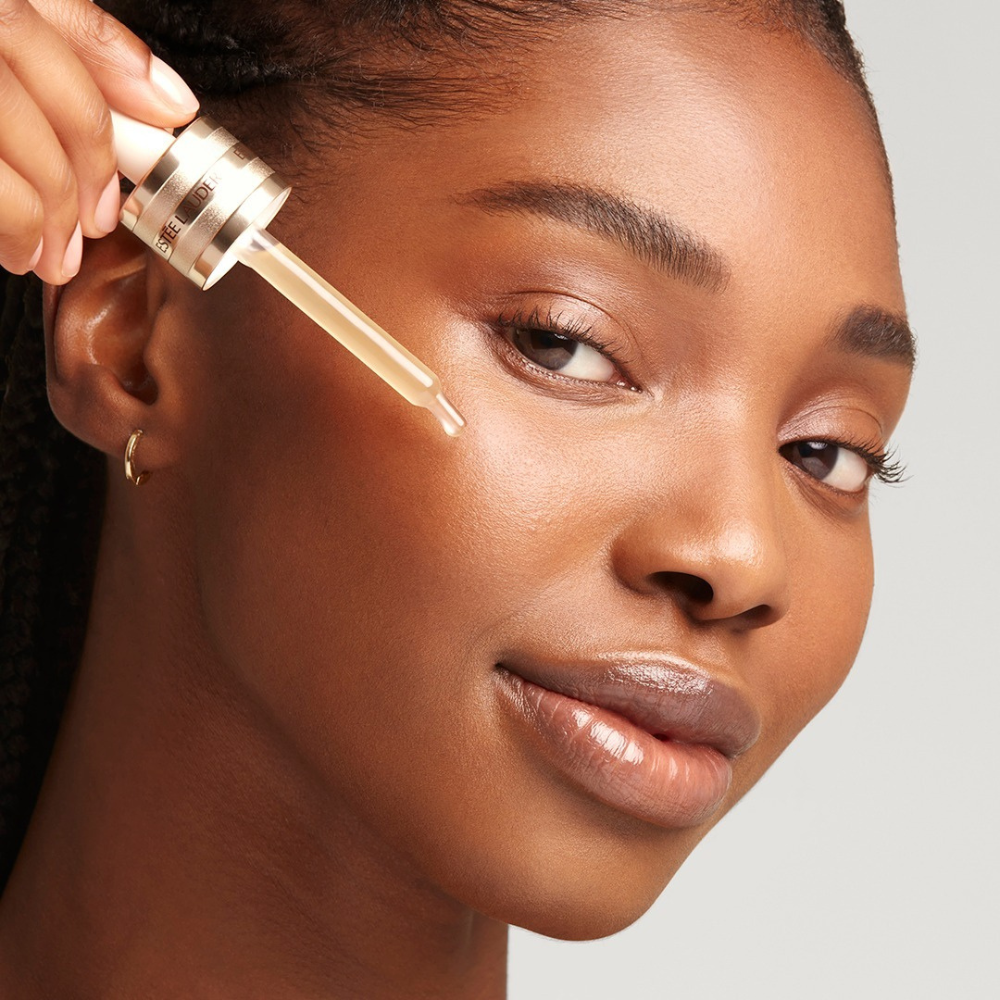H
aving sensitive skin would require a different level of strength from you. One second your skin is clear and popping, and the next minute you notice a redness that’s almost a cause for worry. Having skin that is more prone to irritation and adverse reactions compared to other skin types isn’t a walk in the park.
People with sensitive skin may experience symptoms such as redness, itching, burning or stinging sensations, dryness, flakiness, tightness, rashes, or even hives.
Sensitive skin can be caused by numerous factors, including genetics, environmental factors, and certain skincare products or ingredients. Common triggers for sensitive skin reactions include harsh chemicals, fragrances, dyes, and abrasive materials. Additionally, external factors such as weather conditions, pollution, and UV exposure can exacerbate sensitivity.
Here are a few ways to manage sensitive skin…

Managing sensitive skin often involves using gentle, hypoallergenic skincare products free of irritants and allergens. It’s also important to avoid over-exfoliating or using products with harsh ingredients that can further irritate the skin. Additionally, maintaining a healthy skincare routine, staying hydrated, and protecting the skin from environmental stressors can help minimize sensitivity and promote skin health. If you have persistent or severe skin sensitivity, it’s advisable to consult a dermatologist for personalized recommendations and treatment options.
Here are important things to consider for sensitive skin

- Avoid skincare products containing harsh ingredients, such as alcohol, sulfates, parabens, and synthetic fragrances, as these can irritate sensitive skin.
- Skip abrasive scrubs or exfoliants that can cause micro-tears in the skin and worsen sensitivity. Opt for gentle exfoliants with smooth particles or chemical exfoliants like AHAs or BHAs.
- Fragrances, whether synthetic or natural, can be irritating to sensitive skin. Choose fragrance-free or hypoallergenic products whenever possible.
- Avoid clothing made from rough or scratchy materials like wool as they can irritate sensitive skin. Opt for soft, breathable fabrics like cotton instead.
- Washing your face or showering with hot water can strip the skin of its natural oils and exacerbate sensitivity. Use lukewarm water instead, and avoid prolonged exposure to hot water.
- Washing your face or body too frequently can strip the skin’s natural oils and lead to dryness and irritation. Stick to gentle cleansing once or twice a day, and avoid harsh soaps or cleansers.
- UV rays can trigger sensitivity and worsen existing skin conditions. Protect your skin from the sun by wearing sunscreen with a high SPF, seeking shade, and wearing protective clothing and accessories like hats and sunglasses.
- Stress can exacerbate skin sensitivity and trigger flare-ups of conditions like eczema and rosacea. Practice stress management techniques, such as meditation, yoga, or deep breathing exercises, to help keep stress levels in check.
- Before applying a new skincare product to your face or body, perform a patch test on a small area of skin to check for any adverse reactions or sensitivity.
- If you’re struggling to manage your sensitive skin or experiencing persistent irritation or discomfort, consider consulting a dermatologist for personalized recommendations and treatment options.
By keeping this in mind and adopting a gentle skincare routine, you can help minimize irritation and maintain healthier, more comfortable skin. If you have specific concerns about your skin sensitivity, consider consulting a dermatologist for personalized recommendations.
Check out potent skincare ingredients for sensitive skin

For sensitive skin, it’s important to choose skincare products with gentle, soothing ingredients that hydrate and protect the skin without causing irritation.
- Hyaluronic acid: This ingredient is known for its ability to attract and retain moisture in the skin, to keep it hydrated and plump without irritating.
- Glycerin: Glycerin is a humectant that draws moisture into the skin, keeping it hydrated and improving its barrier function.
- Ceramides: Ceramides are lipids that maintain the skin’s barrier function, protecting it from external irritants and preventing moisture loss.
- Aloe vera: Aloe vera has soothing and anti-inflammatory properties that can calm redness and irritation in sensitive skin.
- Oat extract: Oat extract contains compounds called avenanthramides, which have anti-inflammatory properties that can soothe and calm sensitive skin.
- Allantoin: Allantoin is a gentle, non-irritating ingredient that softens and soothes the skin, making it ideal for sensitive or easily irritated skin.
- Chamomile: Chamomile has anti-inflammatory and antioxidant properties that can calm and soothe sensitive skin, reducing redness and irritation.
- Centella Asiatica (Gotu Kola): This herb has been used for centuries in traditional medicine for its healing properties. It can help to soothe and repair sensitive or damaged skin.
- Green tea extract: This ingredient contains antioxidants and anti-inflammatory compounds that can protect and soothe sensitive skin, reducing redness and irritation.
- Bisabolol: This is a soothing ingredient derived from chamomile that calms and protects sensitive skin, making it less prone to irritation.
When choosing skincare products to manage sensitive skin, look for these ingredients on the label and avoid products that contain harsh chemicals, fragrances, or other potential irritants. Additionally, it’s always a good idea to patch-test new products on a small area of skin before applying them to your face or body to check for any adverse reactions.
Featured image: @esteelauder/Instagram
For the latest in fashion, lifestyle, and culture, follow us on Instagram @StyleRave_
All rights reserved. This material, and other digital content on this website, may not be reproduced, published, broadcasted, cached, rewritten, or redistributed in whole or in part without prior express written permission from STYLE RAVE. Use of and/or registration on any portion of this site constitutes acceptance of our Terms & Conditions and Privacy Policy.
—Read also








































































